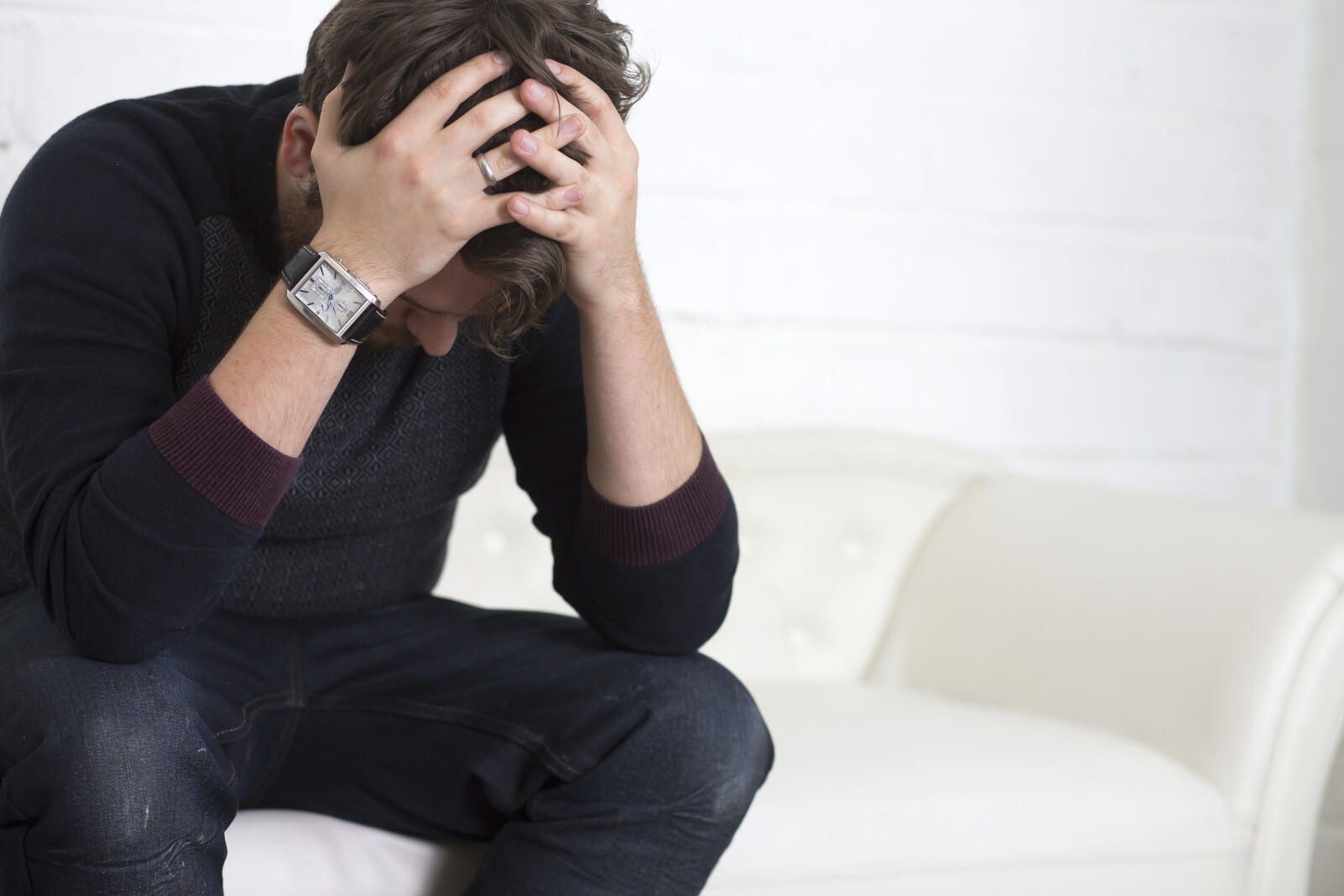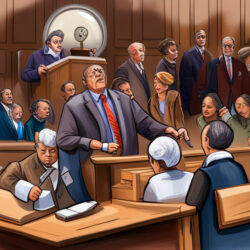Survivors Find Support in Emotional Recovery
Accident survivors often face significant emotional aftermath along with physical injuries. This article elucidates valuable resources to aid these individuals on their recovery journey, focusing on support groups, depression, PTSD, and guilt management. It highlights pertinent resources in Texas, comprehensive legal support, and underscores the importance of professional legal advice. This informative guide aims to assist survivors in navigating the challenging path of physical and mental recovery post-accident.

Key Takeaways
- Valuable resources and support groups are available for emotional recovery after a serious accident.
- MADD, Depression and Bipolar Support Alliance, PTSD Alliance, Trauma Survivors Network, and Mental Health America offer specific resources for coping with the emotional trauma after surviving an accident.
- Accidental Impacts, The Phoenix Society, EmpowHER, and other resources provide support and guidance for those who caused the accident, including coping with guilt and emotional aftermath.
- In Texas, the Texas Commission of Law Enforcement, support groups, resources for police officers and victims of violence, personal injury guides, and a directory of personal injury law firms are available for survivors and those affected by accidents.
Understanding Emotional Trauma After Survival
Understanding emotional trauma after survival is an essential component of the healing process, involving comprehensive resources and support networks that aid survivors in their journey to mental recovery. The long-term effects of emotional trauma can be debilitating, manifesting in forms like anxiety, depression, and post-traumatic stress disorder. It can disrupt everyday functioning and hinder the ability to form healthy relationships. Therefore, it is critical to employ strategies for building resilience after surviving an accident. These strategies may include cognitive-behavioral therapy, mindfulness-based stress reduction, and trauma-focused psychotherapy. Engagement in resilience-building activities such as physical exercise, maintaining a balanced diet and adequate sleep, and fostering social connections can also contribute significantly to recovery and overall mental well-being.
The Role of Support Groups in Emotional Recovery
Frequently, support groups play an instrumental role in emotional recovery by providing a safe space where survivors can share experiences, feel validated, and learn coping strategies. The importance of peer support in these settings cannot be overstated; it fosters resilience, reduces feelings of isolation, and promotes a sense of acceptance. Additionally, the benefits of professional counseling complement the mutual support found within these groups. Therapists can facilitate healing by helping survivors understand and navigate their emotions, develop healthy coping mechanisms, and build a renewed sense of self. As a result, the combination of peer and professional support significantly aids in the holistic recovery process, underscoring the vital role of both in promoting emotional wellbeing post-trauma.
The Interplay Between Physical and Mental Recovery
Delving into the complexities of recovery, one cannot overlook the interplay between physical healing and mental resilience, a dynamic relationship that fundamentally shapes the overall recuperation process. The impact of physical injuries on mental recovery can be profound, often exacerbating stress and anxiety, potentially leading to conditions such as post-traumatic stress disorder (PTSD). It is, therefore, imperative to adopt strategies for promoting holistic healing after an accident. This involves not only treating the physical injuries but also addressing the psychological trauma. Incorporating cognitive-behavioral therapy, mindfulness-based stress reduction, and peer support groups can significantly aid in this process. By fostering a comprehensive approach to healing, we can better support individuals in regaining not just their physical strength, but also their mental resilience and overall wellbeing.
Dealing With Depression Post-Trauma
A survivor's journey of dealing with depression post-trauma often requires a multifaceted approach that includes therapy, support groups, and sometimes medication. Understanding survivor guilt is crucial, as it's a common psychological response following traumatic events. This guilt, often characterized by feelings of unworthiness or self-blame, can exacerbate depressive symptoms. Coping strategies for depression often involve cognitive-behavioral therapy, aimed at restructuring negative thought patterns and promoting healthier responses to stressors. Support groups provide a safe, empathetic environment where survivors can share experiences and learn from others facing similar struggles. Pharmacotherapy may also be employed, with antidepressants helping to regulate mood and alleviate depressive symptoms. It's important to remember that the path to recovery is unique for each individual, and what works for one person may not be as effective for another.
Navigating PTSD: Tools and Support
In managing PTSD, numerous tools and support systems are available, ranging from cognitive behavioral therapy to peer support groups, designed to aid survivors in coping with their trauma. These tools for healing often integrate multidimensional approaches, addressing both psychological and physiological aspects of PTSD. They aim to foster resilience and facilitate a return to normalcy.
Finding support groups can also play an instrumental role in the healing process. These groups provide a safe space where survivors can share experiences, learn from others, and gain strength in the knowledge that they are not alone. Organizations such as MADD, PTSD Alliance, and Mental Health America are just a few that offer invaluable resources. The journey towards recovery from PTSD is a complex one, but with the right tools and support, it is certainly possible.
Survivor-Specific Resources: From MADD to Mental Health America
Interestingly, survivor-specific resources, such as MADD and Mental Health America, provide invaluable support for individuals coping with the aftermath of traumatic events, and they offer a variety of tools to aid in both emotional and psychological recovery. These organizations pave a path towards understanding and coping with survivor guilt, a common psychological response characterized by feelings of guilt for having survived when others did not. Their resources focus on building resilience, providing strategies for emotional recovery that help survivors regain control of their lives. They emphasize the importance of self-care, positive thinking, and building a strong support system. Through their comprehensive programs, survivors are empowered to navigate their journey towards healing and recovery, fostering resilience and encouraging a healthier outlook on life.
Coping With the Aftermath: Resources for Accidental Perpetrators
Undeniably, accidental perpetrators face a unique set of challenges in coping with the aftermath of a traumatic event, and the availability of supportive resources tailored to their needs can be instrumental in facilitating their emotional recovery. Amidst legal implications, these individuals grapple with intense feelings of guilt, a psychological burden that can lead to conditions like Post-Traumatic Stress Disorder (PTSD). Groups like Accidental Impacts and The Phoenix Society offer therapeutic outlets, providing a space for sharing personal narratives and coping strategies. They also offer educational resources to help understand and navigate the complex emotions and legal situations they encounter. The journey towards forgiveness, both self and from others, is integral to the recovery process. These resources can provide a beacon of hope in navigating this challenging journey.
State Specific Support: Focusing on Texas
Where can survivors and accidental perpetrators locate state-specific support in Texas to aid in their emotional recovery after a traumatic event? In Texas, various resources exist dedicated to emotional recovery post-accident. Support groups in Texas such as the Depression and Bipolar Support Alliance and MADD offer coping strategies and communal solace. For those dealing with PTSD, the PTSD Alliance provides assistance. Additionally, Accidental Impacts and the Phoenix Society offer support for those carrying guilt from causing an accident. Texas-specific assistance is also available, with the Texas Commission of Law Enforcement providing information on Federal assistance after an accident in Texas. Resources like these are crucial as they provide guidance through the psychological process of trauma recovery, fostering resilience in survivors and accidental perpetrators alike.
Lawsuit Legit : A Comprehensive Resource for Accident Survivors
Lawsuit Legit extensive resources provide crucial support for accident survivors, and its comprehensive guide is an invaluable tool for those seeking help in their journey towards recovery. Understanding emotional trauma is a fundamental part of this journey. Trauma can infiltrate every aspect of a survivor's life, potentially leading to depression, anxiety, and even Post-Traumatic Stress Disorder (PTSD). Lawsuit Legit serves as a support platform, offering information on coping strategies, access to professional help, and a community of individuals who share similar experiences. Additionally, the website emphasizes the importance of mental health alongside physical recovery, acknowledging the holistic nature of healing. By utilizing Lawsuit Legit, survivors can navigate their emotional trauma with increased knowledge, support, and confidence, thus facilitating a more effective recovery process.
Legal Aspects of Post-Accident Recovery
Understanding the legal implications and rights of an individual during the post-accident recovery phase is a crucial aspect of the healing journey. It not only aids in emotional recovery but also ensures the safeguarding of one's legal rights. It is essential to comprehend the complexities of insurance claims, which are often a source of financial relief in such unfortunate circumstances. Psychologically, the process can be overwhelming, invoking a sense of anxiety and distress. However, knowledge of one's legal rights can provide a sense of control and empowerment during this recovery phase. This process, while challenging, is a significant step in restoring normalcy and stability. Therefore, it is imperative that individuals navigating post-accident recovery are well-informed about their legal rights and insurance claims procedures.
Frequently Asked Questions
What Are the Signs That Someone May Need Professional Help When Struggling Emotionally After an Accident?
Signs that someone may need professional help after an accident include persistent feelings of sadness, anxiety, or guilt, difficulty sleeping, changes in appetite, lack of interest in activities they once enjoyed, and frequent flashbacks or nightmares about the event. These symptoms may indicate the presence of trauma triggers. Professional therapies, such as cognitive-behavioral therapy or eye movement desensitization and reprocessing, can help manage these symptoms and facilitate emotional recovery.
How Can Family and Friends Best Support Someone Who Is Coping With Emotional Trauma After an Accident?
Family and friends can support someone coping with emotional trauma post-accident through emotional self-care initiatives and professional help like trauma therapy. Encourage open communication, validate their feelings, and provide a safe, supportive environment. Assist in self-care practices like rest, balanced nutrition, and regular exercise. Encourage seeking help from mental health professionals specializing in trauma therapy. Remember, recovery takes time and everyone heals at their own pace.
Are There Specific Diet or Exercise Routines That Can Assist in Physical and Mental Recovery After an Accident?
Physical and mental recovery after an accident can be significantly enhanced by adopting certain diet and exercise routines. Trauma-focused yoga, a therapeutic approach, promotes healing by combining physical postures with mindfulness techniques. Similarly, mindfulness meditation aids in reducing stress and anxiety, fostering emotional well-being. A balanced diet rich in nutrients also plays a crucial role in recovery. It is advised to consult with healthcare professionals to develop an individualized recovery plan.
How Can Survivors Find Local Support Groups in Their Area?
Survivors seeking local support groups can utilize online resources like the Trauma Survivors Network, Mental Health America, and PTSD Alliance. These platforms often provide directories or search functions to locate nearby assistance. Local counseling services, too, can be instrumental in connecting individuals with group therapy sessions or workshops. It's important to remember that reaching out for help is a critical step in the journey towards emotional recovery.
What Legal Steps Should Be Taken Immediately Following an Accident to Ensure the Best Outcome for Recovery?
Immediately following an accident, it is crucial to document the scene comprehensively for future insurance claims. This includes taking pictures, noting details of the event, and gathering witness information. Seek immediate medical attention even for minor injuries, as symptoms may appear later. Contact your insurance company promptly to initiate a claim. Consult a lawyer, especially if liabilities are unclear or injuries severe. Prompt, thorough action can significantly affect the success of your physical and financial recovery.
Conclusion
In conclusion, the emotional recovery process following a traumatic accident is challenging but can be aided by a myriad of support groups and resources. These tools, focusing on aspects like depression and PTSD, provide significant assistance to survivors and accidental perpetrators alike. Resources specific to Texas and legal aid, such as Lawsuit Legit, further enhance the support available. Navigating this difficult journey is made more manageable with the right aid, promoting overall healing and recovery.

This post has been generated by AI and was not reviewed by editors. This is Not legal advice. Please consult with an attorney.




